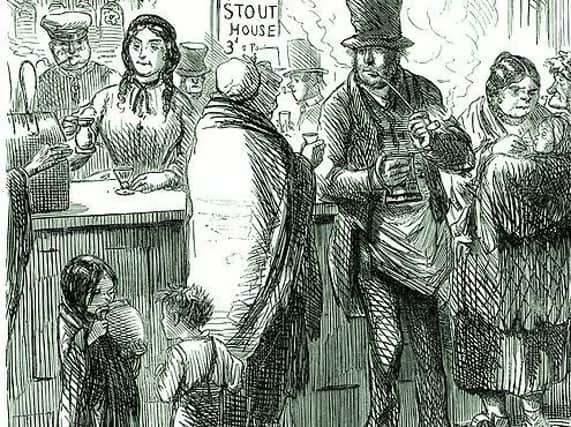Preston publicans investigated over prostitution and gambling in Victorian era


In late Victorian times Preston could claim to have no less than 460 public houses or beer houses within the old borough boundaries. The great demand for licensed premises on many a street corner being fuelled by the industrial revolution and consequently great importance was attached to the Annual Brewster Sessions held in the Preston police court.
This opportunity to approve new application or withdraw permission to licensees was always keenly observed.
Advertisement
Hide AdAdvertisement
Hide AdThe Brewster Sessions of late August 1869 were held before the Mayor John James Myres, a bench of magistrates, and the Vicar of Preston the Rev. Canon Parr. The Chief Constable James Dunn began proceedings by presenting his annual report. He expressed his concerns that a number of publicans openly encouraged thieves and prostitutes to frequent their premises.
His report indicating that over 70 publicans had been prosecuted with the majority of them resulting in a paltry penalty fine of less than £1, an amount he felt was no deterrent. Also of concern to him was the increase in drunkenness that had led to 632 arrests and used up a great deal of police and court time. He concluded his report by criticising the beer house keepers in particular and stated that on his directions three had been forced to close.
The Rev. Parr was next to air his views pointing out that at least seven licensed premises had been known to allow gambling to take place and he cited upwards of 60 public houses or beer houses where prostitutes and thieves gathered daily for immoral and illegal activities. After the Mayor and magistrates had considered the matters presented the Brewster Sessions were adjourned until mid September to allow investigations.
Thomas Smith, the landlord of the Bears Paw Inn on Church Street, was one of those questioned about his suitability for license renewal. According to P.C. Watson although the landlord was a respectable man he had visited the premises on numerous occasions and found prostitutes in the bar parlour, and on two occasions he visited the inn at 4 o’clock in the morning and prostitutes were loitering within. Despite being censored by the magistrates the landlord was allowed to continue trading.
Advertisement
Hide AdAdvertisement
Hide AdThe landlords of the Griffin Inn, the Rifleman Inn, the St. Leger Inn and the Black Swan Inn all situated off Church Street, in Grimshaw Street or Water Street (now Manchester Road), faced scrutiny for harbouring prostitutes, persons of low character and thieves. In their defence Mr. Edelston claimed that the police were often inclined to label women of that neighbourhood who were not altogether virtuous as prostitutes. Remarking to the magistrates that if a factory girl decides to frequent a public house she should not be judged as a person of ill repute.
After brief consultations by the magistrates all those inns were allowed to continue trading, although both the Griffin Inn and St. Leger Inn were only given permission after agreeing to new landlords taking charge.
An application by the Weavers Arms on Milton Street, close to the Moor Lane windmill, led to some heated exchanges with police officers claiming it was normal for at least a dozen prostitutes to frequent the premises many of them dancing and cavorting with soldiers. The age of a number of the girls being called into question with police investigations suggesting some were as young as 14.
The police claiming that a number of known prostitutes who lived down Turks Head Yard were regular visitors. Despite the endeavours of Mr. Edelston on behalf of landlord Thomas Hesketh the application was refused and this signalled the end of the 10 year life of the Weavers Arms.
Advertisement
Hide AdAdvertisement
Hide AdBefore the sessions were over many other applications were successful, although warnings were given to landlords about Sunday trading, gambling and harbouring bad characters.
Whilst the religious bodies and temperance organisations made their feelings felt as to the folly of so many licensed premises within the town.